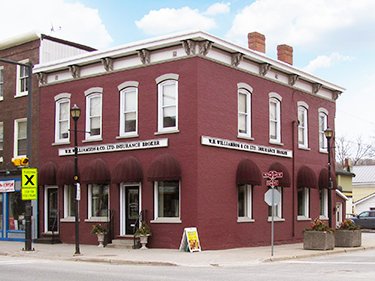Barbecue Season Is In Full Swing: Don’t Go Up In Flames
The joys of outdoor cooking also bring fire and associated risks. Here are some safety reminders for gas and propane barbecues to protect you and your property from harm or damage.
• Never operate a barbecue in an enclosed space, close to a structure, or near combustibles. Have a one metre radius around it free of obstructions.
• Keep your barbecue in tip top shape. Check for hose breakage, valve leaks, and other parts before securing the tank well and turning on the gas.
• When in use, never leave the grill unattended, and when finished turn the tank off before the burners so the remaining gas in the lines can burn off. This can help prevent a flash the next time the BBQ is in use.
• Make sure your fire extinguisher is easily accessible and in good working order.
Additional Tips
• Propane companies use an additive to create an unpleasant odour like rotten eggs to make a propane leak easier to detect, so you can shut off supply immediately, stop using the grill, and clear the area.
• Although the risk of carbon monoxide is low when using a BBQ outdoors, it is not entirely eliminated. Learn to recognize the signs of CO2 poisoning and take appropriate action.
• Store propane tanks in an upright position, in a spot where they are unlikely to be knocked or bumped to prevent any safety risk.
Traditionally, the long weekend in May is the unofficial start to a long-awaited cottage season. Here are some safety tips to ensure it is safe & happy one. Keep the following:
- a first aid kit, and familiarize yourself with its contents;
- a flashlight with spare batteries on hand;
- a 5 lb. multi-purpose fire extinguisher stored where it's easily accessible.
Install a minimum of one smoke alarm per floor. If there are any fuel burning appliances, a woodstove, or a fireplace, install a minimum of one carbon monoxide detector per sleeping area. Test both your smoke alarm(s) and CO detector(s) monthly. Replace batteries each year. Plan and practice a fire escape plan with your family. Wood burning stoves or fireplaces should be cleaned and inspected annually by a Wood energy Technology Transfer (WETT)-certified inspector.




 W.H. Williamson & Co. Limited
W.H. Williamson & Co. Limited




